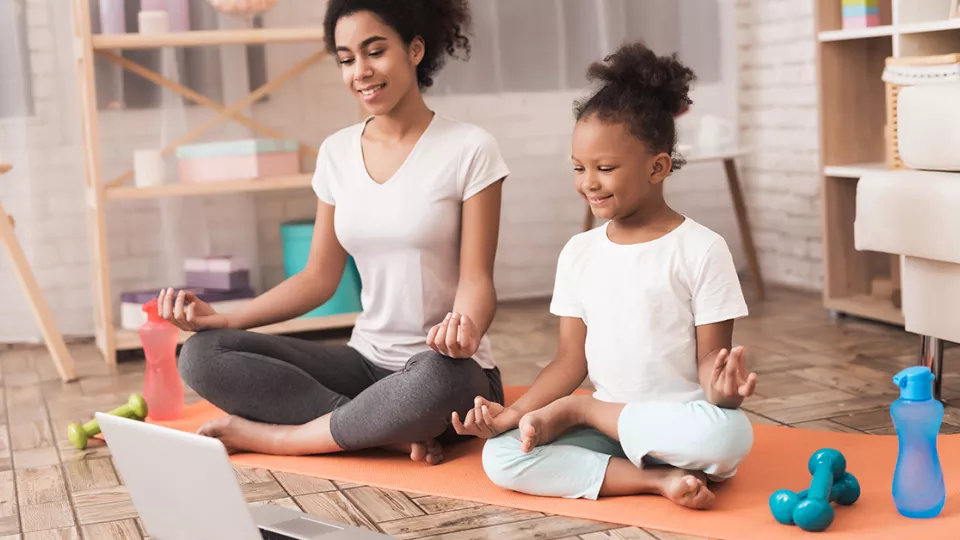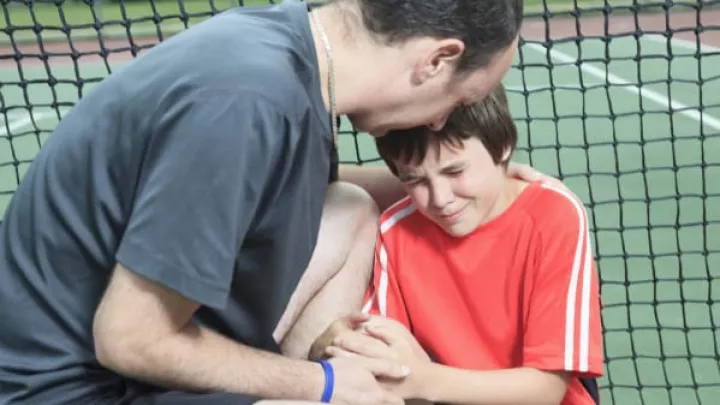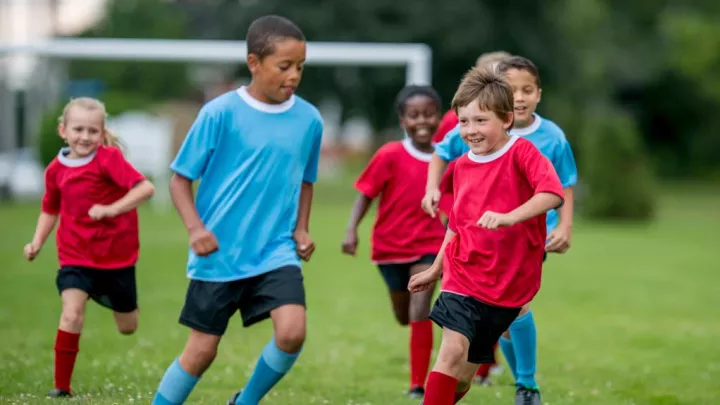
Staying Active During COVID-19
Although research has proven the immense benefits of physical activity for the body and brain, families may be facing the difficult challenge of achieving the same levels of physical activity they once had prior to quarantine restrictions amidst the COVID-19 pandemic. Sports, from the PE gymnasium, to the little league baseball mound, to the dance studio, to the pool to help practice for Junior Olympic trials, help build strength, confidence and resiliency for life. For the first time since the concept of organized sport was broadly introduced to the world, we are now left without practices, games or team fellowship in sacrifice for a larger duty to health and safety. One may argue, though, that physical activity is crucial for a time like this, a time that we need to quell feelings of anxiety and stress to come out on the other side of recovery from this pandemic. Not only can exercise during this time keep your body healthy and conditioned to make the transition back into organized sports easier, physical activity can help our mental wellbeing, help the anxious part of our brains calm down and rest by providing a meditative detour for the day. Just because the lights in the gym may be off and a lock may be on that little league gate right now, families can still achieve strenuous physical activity together without a large field and without equipment. Dr. Bianca Edison, Attending Physician for the Children’s Hospital Los Angeles Sports Medicine program, wanted to provide families with tips to keep our bodies moving and active during this quarantine.
Break things up
The American Academy of Pediatrics and Centers for Disease Control and Prevention recommend at least 60 minutes of vigorous physical activity per day for our youngsters. However, you can break that time up during the day, which may help even more. Taking short active breaks throughout the day with short bursts can be less daunting and help with kids’ focus and attention for other tasks, such as online learning during this time. Taking a break to have a 15-20 minute dance party, helping to perform higher intensity chores like deep cleaning the basement, gardening in the backyard, or taking a family walk in the neighborhood (with your mask) can all be activities that help achieve the recommended daily goal.
Walking can be a great source of exercise for the whole family
Walking in place (kids love marching to music), around the block or even in small spaces can help you stay active. Playing a game of scavenger hunt around the house to pick up items that are out of place while you “explore” can be a fun activity for the whole family.
Use what is immediately around you to help you move
If your family does not have all of the gear you’re accustomed to, you can improvise and achieve similar results. Using canned goods to replace light weights or using your body weight as resistance during squats or push-ups can be easy substitutes. Instead of a yoga mat, a soft towel can suffice and provide you with enough cushion on a hard floor.
Take advantage of digital resources
Instead of a binge session of Fortnite, have your child find an online class or training session to help maintain their skills or feel connected to their sport. Right now, there are some fantastic free videos that offer general mobility or strength training as well as sport-specific drills. The experts or athletes are often conducting these classes out of their homes or backyards, so participating with minimal space is achievable. As a family, taking advantage of a free online yoga class can keep everyone limber and strong.
Embrace free play
Unstructured time to be active and engage in free play can not only help encourage physical literacy skills, it enables the child to creatively direct how to engage actively with their environment. There are resources available that parents can access to give ideas for such activities such as animal walks, cardboard javelin or balloon tennis. These fun games not only make activity fun, they reinforce basic skills needed for sports participation.
Give yourself and your athlete acceptance and empathy
These times are emotionally challenging as organized sports have suddenly stopped, and a competition or event that you or your child may have been working toward has been cancelled, which can cause stress or feelings of sadness. Acknowledge and validate those feelings and help discuss with your child ways to still feel connected to a particular sport or team such as weekly virtual check-ins with teammates or online leader boards for family workouts. Exercises that promote positive imagery can also help. That nurtured connectedness is key to maintaining mental wellness. In addition, focusing on being active instead of being the absolute best can help take away performance pressure and additional stress.
Participate while still making sure to avoid injury
During this time of decreased interaction with a coach or PE teacher, it is critical to still pay attention to proper form and avoid overtraining to reduce risk of injury. Make sure you and your young athletes listen to signals sent from the body; if something starts hurting, especially from a joint such as a knee or shoulder, stop. Never push through pain. Make sure to engage the core muscles of your body to help provide proper stability and avoid overstressing the joints.
Rest is a key component to your daily activity regimen
Maintaining a proper sleep schedule and allowing your body some time off from high intense training can provide it with time to heal and rejuvenate. Many injuries occur from a lack of proper sleep or when your body is physically tired. It is important to show up each day well-rested.
During this time, it is important to be S.M.A.R.T. about staying active:
Set a regular schedule so that the body expects some form of activity daily.
Meditate to combat mental stress.
Allow for varied workouts to train and strengthen different parts of the body.
Rest properly for rejuvenation, to include proper sleep.
Take advantage of this time to be close with your family and focus on what you can control.


